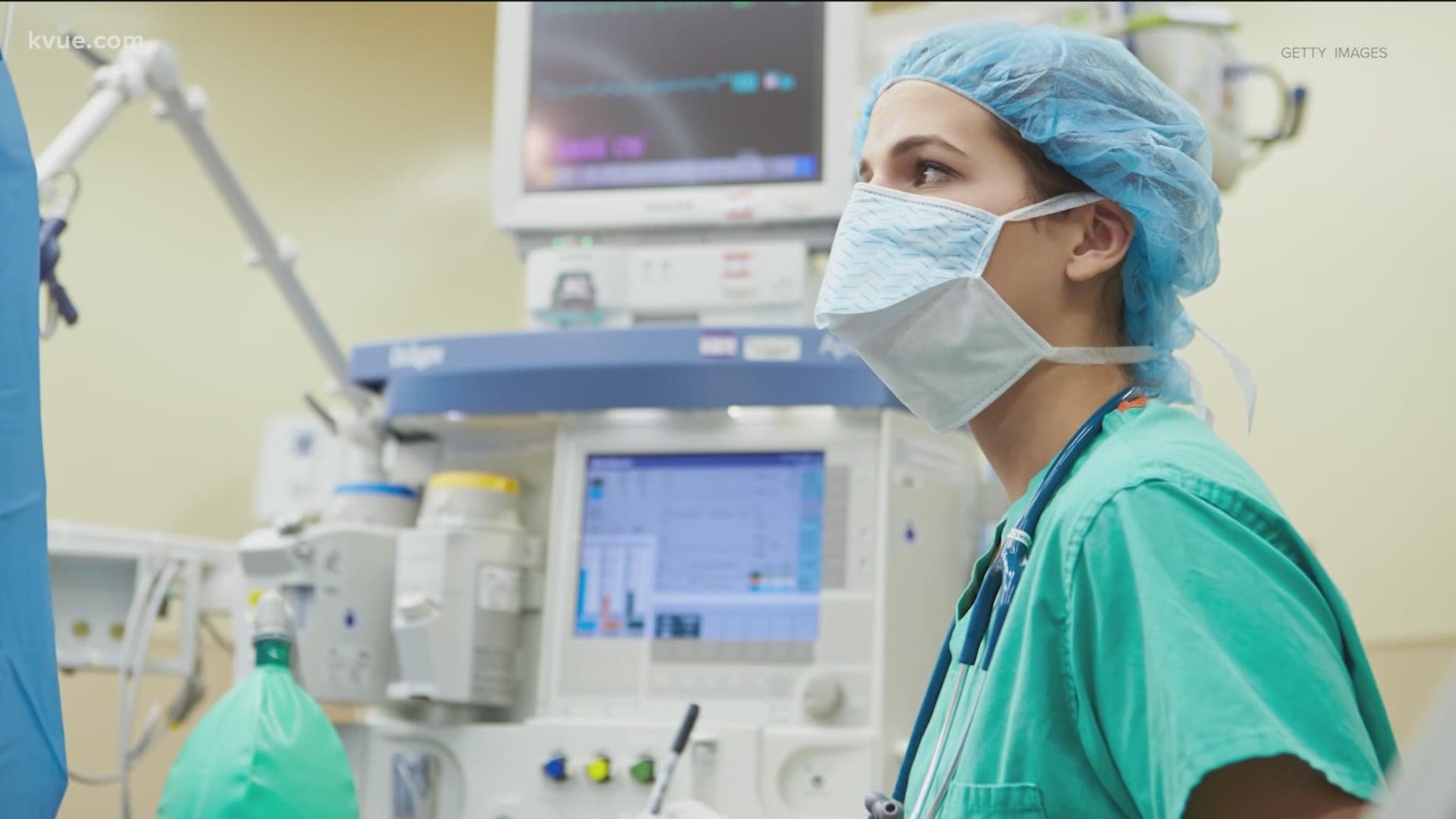HOUSTON — What Texas nurses are experiencing during the COVID-19 pandemic will affect any of us if we need their care.
Serena Bumpus was inspired to get into the profession because she was raised in a family of nurses. She’s the Director of Practice at the Texas Nurses Association, representing about 16,000 of 350,000 registered nurses in the state.
Here's what she said when she was asked if people should be concerned that there may not be enough nurses to help save their life.
“They should. Yes, they should. They should be concerned that, you know, it’s an already stressful and chaotic work environment, and then the fact that we are seeing an increase in the number of patients and admissions and potential for overflow should be very concerning to the general public. There is a real concern that we won't have enough nurses or physicians or respiratory therapist or patient care techs, anything to take care of the number of patients that we might be seeing."
During a hospital capacity bed update held via Zoom on June 25, the heads of several Texas hospitals said they’re prepared to bring in nurses from other states if necessary, similar to what New York did at the height of its COVID-19 pandemic. Hospital bosses also said they had enough PPE.
“From a PPE standpoint, we've never really been fully supplied,” Bumpus said. “I say that because as long as nurses are having to reuse masks, as long as we're having to go through a decontamination process, so we are able to reuse those masks, we're not at a point where we are plentiful with PPE. Some hospitals are having to order reusable isolation gowns that can be laundered versus the disposable gowns that would normally be thrown away. While we have enough to ensure that nurses are protected and aren't doing without, it is not up to the normal standard that we had pre-COVID. There's still a shortage.”
Bumpus said people have an opportunity to stop the spread of the virus that’s affecting every aspect of life, certainly healthcare facilities. Texans can do that by social distancing, washing hands and wearing a mask.
“I attribute wearing a mask as just like wearing a seat belt,” she said. “I was in middle school and I remember people being very upset that, ‘Gosh, how dare you infringe on my rights? I don't want to wear seat belts when I get in my car.’ While wearing a mask brings up the same emotions, we just have to think of it like wearing a seatbelt, the mask is sort of the reverse. It's to protect other people from us. Where a seatbelt is there to protect us. We all play a role in making sure that our hospitals and our frontline care providers and our nurses are able to take care of the patients that walk through their doors."

